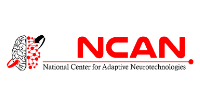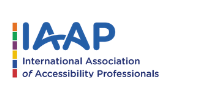
Location: Online
Event Timing: 1:00 P.M. - 2:00 P.M. EST (US & Canada)
Date: November 17, 2020
Watch the webinar recording on YouTube.
A conversation between a neuroscientist and a brain-computer interface (BCI) user, the first human to ever have electrodes implanted to enable sensation of an artificial limb.
Recent experiments have demonstrated that microelectrodes implanted in the sensorimotor cortex of a person’s brain can enable not only the movement control of an artificial limb, but also the sensation of it, thereby improving the speed and accuracy of reaching and grasping movements. The one-hour conversation will include an overview of where this neurotechnology stands today, from the researcher and user's perspective, as well as a discussion of the real-world availability and support of this promising solution.
Featuring opening remarks by Patrick McGovern, Chair of the Board of Trustees, Patrick J. McGovern Foundation; Jennifer Collinger, PhD, University of Pittsburgh, a pioneer in research in intracortical brain-computer interfaces for individuals with tetraplegia, and Nathan Copeland, the first human to test brain-computer interfaces with the sensory cortex. A dialogue introduced by Theresa Vaughan, Research Scientist at the National Center for Adaptive Neurotechnologies (NCAN) and Chair of the NeuroAbilities Advisory Council, and moderated by Christopher Lee, PhD, Managing Director, International Association of Accessibility Professionals (IAAP), a division of G3ict.
The webinar is part of NeuroAbilities, G3ict’s newest dedicated program to explore the current state of assistive solutions based on advanced Neurotechnologies, Brain-Computer Interfaces (BCI) and Artificial Intelligence (AI) enabling persons with disabilities and older persons to better interact with their environment.
The NeuroAbilities research program is made possible by:
A grant from the Patrick J. McGovern Foundation

Scientific and programmatic support offered by the National Center for Adaptive Neurotechnologies
Technical support contributed by the International Association of Accessibility Professionals
Speakers' Biographies:

Jennifer Collinger, PhD is an Assistant Professor in the departments of Physical Medicine and Rehabilitation and Bioengineering at the University of Pittsburgh. Dr. Collinger’s research interests are related to the use of neuroprosthetics to restore function for individuals with upper limb paralysis or loss. She is particularly interested in expanding capabilities related to hand function and enabling reliable, long term control. Her work also includes non-invasive imaging for measuring neuroplasticity after spinal cord injury or amputation.

Nathan Copeland is a neurotechnology consultant and a brain-computer interface user. He is the first human to ever have electrodes implanted in the sensory cortex. After a car accident in 2004, Nathan was left paralyzed from the chest down. For the last six years, he has been part of a leading brain-computer interface study through the University of Pittsburgh. Nathan will share his experience of controlling a robotic arm and receive sensation back from it thanks to four implanted micro-electrode arrays in his brain.

Theresa Vaughan, BA is a research scientist with thirty years of experience focused specifically on Brain-Computer Interface (BCI) as new communication channels for people with severe motor disabilities. Her laboratory supervised the first-ever large-scale trial of independent home use of a BCI by people with amyotrophic lateral sclerosis (ALS). This work has become the foundation of the National Center for Adaptive Neurotechnologies (NCAN) translational service project program. She is currently the research partner on a Phase I SBIR project aimed at bringing the BCI home device to market, and most recently, she has begun to organize NeuroAbilities.

Christopher M. Lee, PhD, is an international expert in the accessibility field, he is an author and public speaker on learning disabilities and assistive technology. He has received and served as principal investigator on numerous research grants and contracts. Dr. Christopher Lee serves Managing Director of the International Association of Accessibility Professionals (IAAP), a division of G3ict.

